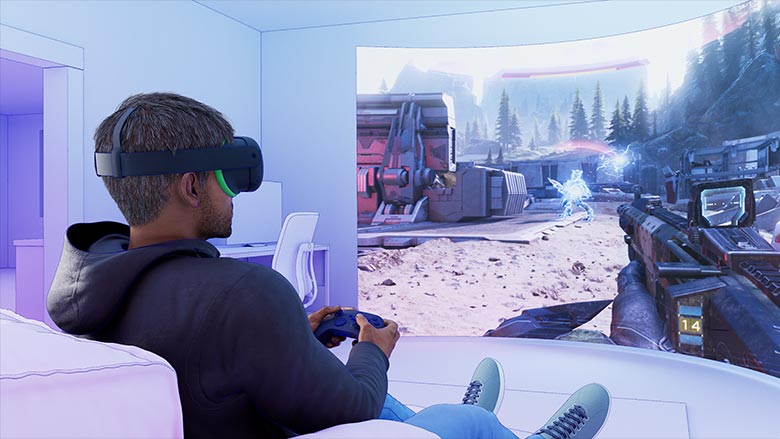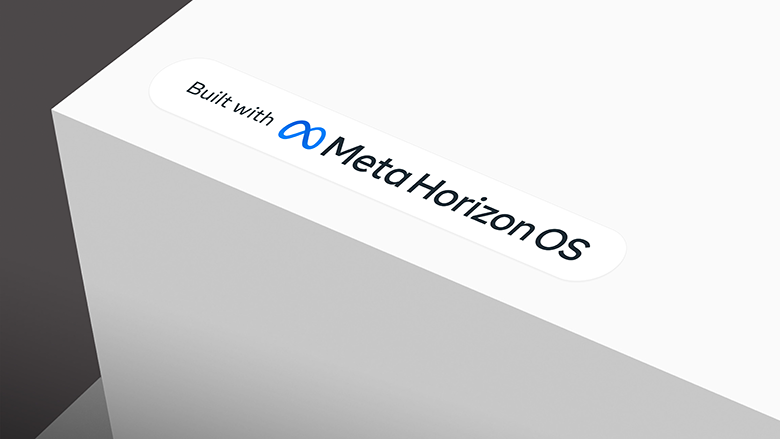The point that Zuck is missing when he says that Quest 3 is better than the Vision Pro
Some days ago, Mark Zuckerberg made a video specifically to say that the Quest 3 is better than the Vision Pro. It’s been literally my highlight of the week: Zuck trying to make an objective review and concluding that his own product is better… literally makes no sense. It’s like me making a video tomorrow and saying that our social VR space VRROOM is better than Horizon Worlds because, well, it’s my product… and also because we have legs. I think I’ve never seen a CEO doing something like this, but that’s part of what makes Zuck Zuck… sometimes he has his naive moments where like he forgets he’s the boss of one of the biggest tech companies in the world, and just shares videos and photos online like if he was a random guy with 29 followers. Honestly, I am even happy this happens, at least we have some fun things to comment on in our community.
Zuck made an analysis of the Quest 3 vs Vision Pro which in my opinion kinda makes sense, but that misses the bigger picture. Let me show you why.
Zuck’s analysis

Mark Zuckerberg claimed to have tried the Vision Pro and concluded that the “Quest 3 is the better product, period”. He says that Quest 3 has a good passthrough, too, and it has big screens you can put in the space, too. It has hand tracking, and the Pro model also has eye tracking, like Apple’s device. Quest 3 is better for gaming and has precision controllers. He says that Quest 3 is lighter and has an integrated battery. It is better for most mixed-reality uses. The Quest 3 has inferior resolution but no motion blur in its visuals. Then he ended the video by saying that Apple has a closed ecosystem model, while Meta is open, and sometimes an open model won, like in the PC case.
The analysis that Zuck did is correct and all the points he brings to the table are valid. And I agree with him that for most use cases, for the average XR user, the Quest 3 is enough. But exactly as the whole video, it is a naive analysis, because there are many other things to evaluate in this comparison between the two products, especially if seen from a future perspective. Let me tell you what errors the Zuggity is making in my opinion.
The comparison is simply biased
“No shit, Sherlock”, I hear you say. Yeah, but I had to write it clearly: the comparison that he made is completely biased. He appreciated very briefly some features of the Vision Pro but always diminishing their importance… even when they were very important. So, it’s true that Vision Pro has bad comfort and an external battery, but this is what allows it to be a much more powerful headset with a very strong processor. It’s true that Vision Pro does not have controllers, it’s true that Quest Pro had eye and hand tracking, too, but the eye and hand tracking UX offered by the Vision Pro is unrivaled in the whole XR space (even if not perfect, as I explain in this article). It’s true that the Vision Pro displays have motion blur, but they have a resolution that makes everyone who tries them excited.
I’ve read countless reviews about the Vision Pro and the common consensus is that it’s another product different from Quest 3. It has another price (a huge price) and another purpose (“spatial computing” vs gaming), so comparing them makes sense up to a point. But in general, people who review it praise the Vision Pro as the future of XR, so everyone sees it as a device superior to the Quest 3. But at the same time, most of them see the Quest 3 much better as “value-for-price”. A fair review would highlight all of this: there’s no “better product, period”. But there are “better reviews, period”, like this one just published on Upload VR (great job, Heaney, by the way).
The feature itself does not count, the execution counts

Comparing two headsets feature by feature makes little sense because it doesn’t matter only to have a feature, it also counts how that feature is good. Quest 3 has a decent mixed reality, but all reviewers agree that Vision Pro’s is better. You can watch movies on Quest, but the quality with which you see them on the Vision Pro is from another category, not to mention the fact that you can easily access them via the Apple TV service. Some reviewers claim that the Vision Pro could substitute a TV, while I’ve never read that about the Quest 3. Seeing your laptop screen as a huge display is just a matter of pressing a button on Vision Pro, while with Quest 3 I have to install a streamer app on my PC, then open the right application on Quest, make them discover each other, to just then see something in potato quality (with Horizon Workrooms my laptop streams at a screen resolution that I had probably in the 90s). Quest Pro has eye tracking, but almost no one with eyes has a Quest Pro, because it was totally not worth its price. And Vision Pro’s eye and hand interface feels like telepathy most of the time.
This is to say that it doesn’t only count to have a feature, it also counts how you do it. Apple’s features shipped in the Vision Pro are delivered with high quality and are incredibly polished. As many people have already said, the Vision Pro ships features that most of other headsets already provide (with few exceptions like the EyeSight thing), but on the Vision Pro they work with a quality level that is so high that they are finally usable.
The feature itself does not count, the whole package counts
Let’s continue talking about features: every Apple event, Apple announces new features of its new phone models of its new operating system versions. And they do it in a way that it is like they invented everything: “Oh, look, now Apple engineers have invented something incredible like DOCUMENTS YOU CAN EDIT TOGETHER”. Typically when Android users hear these things, they make a face similar to this one

and then remind everyone how there were Android phones adding this 5 years before. There are some exceptions (e.g. ARKit), but usually, all new features announced by Apple are like old features for Android users. Apple is almost never the first to ship anything.
But what Apple ships is usually ultra-polished, it is super-easy to be used, and it is fully integrated with all its ecosystem. It just works, and it works well. And the devices themselves work well and integrate perfectly with the other devices. This is what makes Apple special. And that’s why, while there are thousands of memes on social media mocking the old features sold as new for a new iPhone, the day that iPhone launches makes record sales in all Western countries.
The Vision Pro shows signs of all of this: it integrates with Macs, it uses AirPlay, it can use most iPad apps, etc… Quest 3 has nothing in this sense, literally. Also content-wise (and “content is king”, remember that), Apple can launch with almost all iPad apps and all content from Apple TV, Apple Arcade, Apple Music, and I guess in the future Apple Fitness. Quest has nothing of this. Quest 3 has anyway an amazing gaming library, which Meta hardly built over the years (Kudos for that), and in fact Quest 3 is much better as a gaming device. And Vision Pro has nothing of this.
The feature itself does not count, Apple counts

The Apple brand is super strong everywhere in the world (including in China) and people feel cool flexing their own Apple devices. The Apple brand is very powerful and in fact now there are some celebrities (like T-Pain) that have made some videos wearing the Vision Pro. On the contrary, no one is proud of wearing anything related to Meta/Facebook. Also Apple’s claims about it protecting privacy are going to play very well now that people will have to wear cameras on their face, while on the contrary, Meta’s reputation…
Apple is a cult, you see that in their events that look like religious ceremonies in some parts. Apple has fanboys. People sleep in front of the Apple Stores to buy the phones when they launch. I’ve never seen anyone sleeping in front of Zuck’s house…
The marketing power has already been very important in XR: when Quest 1 launched, its features were comparable to the ones of some of its competitors, but all the magazines and the people in the community just talked about Quest, totally overshadowing the other headsets. The Quest won even before it became a much better headset over time with better content and a better OS. Now the situation looks reversed, with the perceived value of the Vision Pro being already superior to the one of the Quest 3.
The feature itself does not count, the foundation counts
Everyone is saying that: Apple is creating the foundations for its future XR devices. The Vision Pro is a first product, it can’t be perfect. Meta has been in the space for more time, it knows its users much better. Apple is still learning. But the important thing is that it launched this device, with many important foundational things in its OS, like the UX, the multitasking, etc.. which will be the base for future cheaper and more advanced devices. And this foundation is much better than Quest’s, which has still a pretty bad user experience.
In the end, what counts is the perceived value

At the end of the day, barely comparing products makes always sense up to a point. There is not only the product, but also what there is around it. Plus, people are not robots, and often value things in ways that are not objective: a strong brand may make them feel like a product is better than another one from a small unknown brand which maybe is actually much better. The user experience may change everything: a product with 1000 technical features but that is unusable is considered nowadays worse than one with 30 features but implemented very well. So at the end of the day, “no one cares about which is the better product, period”.
The perception of the importance of Vision Pro in the whole community is enormous. I’ve never seen much hype for a headset before, not even for the Quest. Maybe Magic Leap, before people got to know that the device was sort of a HoloLens 1+, had such attention to it. But in this case, the hype is also justified by the fact that a huge company like Apple entered XR and it’s here to stay. And this headset is already creating ripple effects: Quest launched a feature to watch Apple spatial videos, Pico changed its plans to launch a Vision Pro competitor, and Samsung is reworking its headset to be able to compete with Apple. The release of Vision Pro is having such huge effects that its release is already been very relevant in the space.
Am I saying that Apple will dominate the market? Absolutely no, maybe it will totally fail in this XR endeavor. Am I saying that Vision Pro is better than Quest? No, that would be naive: they have different markets and different purposes. But I’m saying that just trying a headset for some hours and then saying “My product is better” feels a lot naive to me. Because that “product which is not better” is the gadget of the moment, the whole world is speaking about it, and it is literally threatening billions of investments of your company. And in fact, Zuck, you felt pressured to make a video to say that your product is better… but if you felt so confident, you didn’t need to do that video, because the product would have spoken by itself. Tim Cook has never made any video about the Vision Pro being better than Quest, because Apple is confident of its plans and the value it offers.
PS: Quest is not like PC
Let me end this analysis with a little comment on the usual narrative by Zuck: “Apple is a closed ecosystem, while Meta is the open one”. This is just not true: Meta in XR has always been a wannabe-Apple. In fact, its ecosystem has always been described as a “walled garden” by everyone. If Meta was so open as Zuck says, while I as an indie have to publish on a second-tier store like App Lab? Why every time I discover a way to operate with Android directly on Quest (like when I discovered you could still open the Android Settings window), an update soon after closes that hole? Why can’t I access the cameras of the device? Why can’t I easily open my Quest and mod it? Why did we have the mandatory Facebook login? Yes, the Quest ecosystem is slightly more open than Apple’s one, because we can sideload stuff and there are more services by third-parties, but this has been a necessity more than a vision decision, in my opinion. If Meta had the same wide ecosystem that Apple has (with its completely custom operating system, multiple hardware devices, and services for TV, music, etc…) most probably it would rely less on collaborations with third parties.
Here the struggle is between a closed ecosystem and a super-closed ecosystem. Not the best choice we have as users…
I can not wait for the next weird thing that Zuck will do when he is in a hangover from too much BBQ sauce. In the meantime, if you would like to subscribe to my newsletter and receive these articles straight in your inbox, I would be very happy! My newsletter is better than the other ones, period 😛
(Header image by Meta)
Disclaimer: this blog contains advertisement and affiliate links to sustain itself. If you click on an affiliate link, I'll be very happy because I'll earn a small commission on your purchase. You can find my boring full disclosure here.



